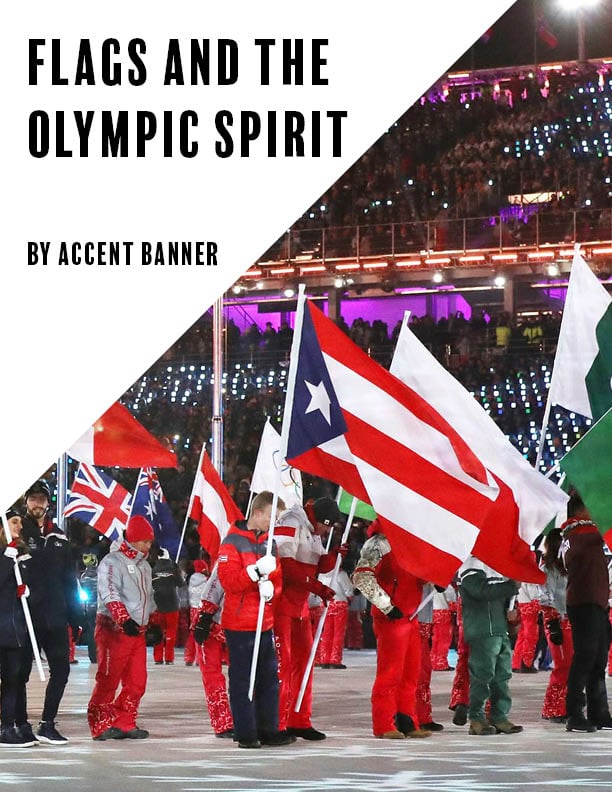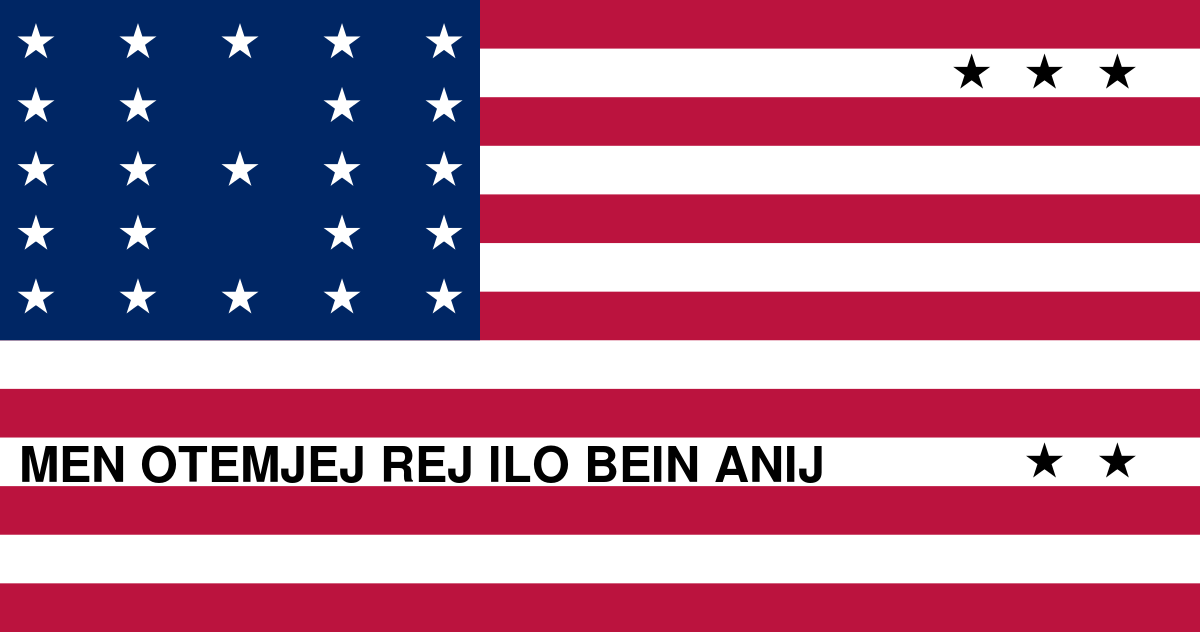Flag Trivia & History: What The Colors of A Flag Represent
The colors of a flag are chosen for reasons far beyond their aesthetic value. The colors and graphic elements of a flag are chosen carefully and...

The Olympics has spread its gospel far and wide since the first modern Games held in Athens in 1896 and athletes from thirteen countries participated. Since then at PyeongChang 2018 Olympics, there has been 206 recognized Olympic Nations, represented by a National Olympic Committee (NOC) in each country. The International Olympic Committee (IOC) presides over the Olympic Games themselves, and the NOCs are divided between five continental associations. No other worldwide organization, outside the United Nations can quote such impressive figures as these. The Olympic movement is unique, designed as it is to transcend national boundaries, political affiliations and differences of religion and color and to plan its activities in a regular four cycles. The Olympics games is intended to be all friendship and brotherhood and does not fall short of its aims.
Olympic Games ceremonies
The Ancient Olympic Games is an integral part of the present games. The modern Olympic games have three major elements, opening, closing and medal ceremonies. Some of the elements of the modern ceremonies harken back to the Ancient Games from which the Modern Olympics draw their ancestry. The Olympic opening ceremonies represent the official commencement of an Olympic Games.
Parade of Nations
The traditional part of the ceremonies starts with a "Parade of Nations", during which most participating athletes march into the stadium, country by country. For every Opening Ceremony, each host country has a theme. During the "Parade of Nations", the host country's goal is to represent their cultural identity and to show the world their place in society. For example, in the 2008 Beijing Olympics the theme was “unity”. On May 12, 2008, a devastating earthquake erupted in Sichuan. As the host country, China wanted to remember this tragic event by having Yao Ming, a Chinese basketball legend, walk together with Lin Hao, a nine-year-old boy who saved some of his classmates during the earthquake.
Each country's delegation is led by a sign with the name of their country and by their nation's flag.
Traditionally, since the 1928 Summer Olympics Greece always enters first and leads the parade due to the historical status as the progenitor of the Olympics, and the host nation enters last. All other participating teams enter after Greece and before the host nation, in alphabetical order according to a language selected by the organizing committee for those games, which is usually the dominant language in the area of the host city. Announcers announce each country's name in English, French and the dominant language of the area of the host city, if neither English nor French is the dominant language. In the 2004 Summer Olympics in Athens, the Greek flag led the parade, while the Greek team entered last, as the host nation; Saint Lucia then entered first.
Medal Presentation
After each Olympic event is completed, a medal ceremony is held. A three–tiered rostrum is used for the three medal winners, with the gold medal winner ascending to the highest platform, in the center, with the silver and bronze medalists flanking. After medals are distributed, the flags of the nations of the three medalists are raised. The flag of the gold medalist's country is in the center and raised the highest while the flag of the silver medalist's country is on the left facing the flags and the flag of the bronze medalist's country is on the right, both at lower elevations than the gold medalist’s country's flag.
The flags are raised while the national anthem of the gold medalist's country plays. Citizens of the host country also act as hosts during the medal ceremonies. They aid the officials who present the medals and act as flag bearers.
Closing Ceremony
In contrast to the opening ceremony, many elements of the Olympic closing ceremonies gradually developed more by tradition than official mandate. Like the opening ceremony, the closing ceremony begins with the raising of the host country's flag and a performance of its national anthem. Then after the flame is extinguished, there would be a party for the athletes featuring some of the host country's music culture.
The traditional part of the closing ceremony starts with the "Parade of Flags", where flag bearers from each participating country enter the stadium in single file, with the Greek flag in the lead and the host nation's flag bringing up the rear. Behind them march all the athletes without any distinction or grouping by nationality. This "Parade of Athletes," the blending of all the athletes, is a tradition that began during the 1956 Summer Olympics at the suggestion of Melbourne schoolboy John Ian Wing, who thought it would be a way of bringing the athletes of the world together as "one nation." It was the very first International Peace March ever to be staged
After all the athletes enter the stadium, the final medals ceremony of the Games is held. The medalist’s national flags are then hoisted and the national anthem of the gold medalist’s country is played.
Next, two other national flags are hoisted on flagpoles one at a time while the corresponding national anthems are played: the flag of Greece to again honor the birthplace of the Olympic Games, and the flag of the country hosting the next Summer or Winter Olympic Games. "Hymn to Liberty", the national anthem of Greece, has been performed at every closing ceremony of the Olympic Games. Then, while the Olympic Hymn is played, the Olympic flag that was hoisted during the opening ceremony is lowered from the flagpole and carried from the stadium.
Afterwards, the President of the Organizing Committee makes a speech. The IOC President then makes a speech before closing the Olympics by saying:
And now, in accordance with tradition, I declare the Games of the [ordinal number of Summer Olympics] Olympiad/[ordinal number of Winter Olympics] Olympic Winter Games closed; and call upon the youth of the world to assemble four years from now in [name of next host city] to celebrate the Games of the [subsequent ordinal number of Summer Olympics] Olympiad/[subsequent ordinal number of Winter Olympics] Olympic Winter Games.
Finally, the Olympic flame is extinguished, marking the end of the Games.
References
-https://www.polgeonow.com/2012/07/olympics-parade-of-nations.html
-https://en.wikipedia.org/wiki/Olympic_Games
-https://en.wikipedia.org/wiki/Olympic_Games_ceremony
-Behind the Olympic Rings by Geoffrey Miller, Published by H.O Zimman, Inc

The colors of a flag are chosen for reasons far beyond their aesthetic value. The colors and graphic elements of a flag are chosen carefully and...

If you own an American flag, you are well aware of the symbolism of this national emblem: the stars in the field of blue that represent the union;...

2 min read
When most people think of flags, they aren't likely to think of the word "interesting." Most people take national flags for granted, but there are...